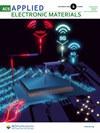Evaluating Performance of ChatGPT on MKSAP Cardiology Board Review Questions
IF 4.3
3区 材料科学
Q1 ENGINEERING, ELECTRICAL & ELECTRONIC
引用次数: 0
Abstract
Chat Generative Pretrained Transformer (ChatGPT) is a natural language processing tool created by OpenAI. Much of the discussion regarding artificial intelligence (AI) in medicine is the ability of the language to enhance medical practice, improve efficiency and decrease errors. The objective of this study was to analyze the ability of ChatGPT to answer board-style cardiovascular medicine questions by using the Medical Knowledge Self-Assessment Program (MKSAP).The study evaluated the performance of ChatGPT (versions 3.5 and 4), alongside internal medicine residents and internal medicine and cardiology attendings, in answering 98 multiple-choice questions (MCQs) from the Cardiovascular Medicine Chapter of MKSAP. ChatGPT-4 demonstrated an accuracy of 74.5 %, comparable to internal medicine (IM) intern (63.3 %), senior resident (63.3 %), internal medicine attending physician (62.2 %), and ChatGPT-3.5 (64.3 %) but significantly lower than cardiology attending physician (85.7 %). Subcategory analysis revealed no statistical difference between ChatGPT and physicians, except in valvular heart disease where cardiology attending outperformed ChatGPT (p = 0.031) for version 3.5, and for heart failure (p = 0.046) where ChatGPT-4 outperformed senior resident. While ChatGPT shows promise in certain subcategories, in order to establish AI as a reliable educational tool for medical professionals, performance of ChatGPT will likely need to surpass the accuracy of instructors, ideally achieving the near-perfect score on posed questions.
评估 ChatGPT 在 MKSAP 心脏病学委员会复习题中的表现。
聊天生成预训练转换器(ChatGPT)是 OpenAI 开发的一种自然语言处理工具。关于人工智能(AI)在医学中的应用,人们讨论最多的是人工智能语言是否能增强医疗实践、提高效率和减少错误。本研究的目的是分析 ChatGPT 通过使用医学知识自我评估程序(MKSAP)回答董事会式心血管医学问题的能力。研究评估了 ChatGPT(3.5 版和 4 版)与内科住院医师、内科和心脏病科主治医师一起回答 MKSAP 心血管医学章节中 98 道多选题(MCQ)的表现。ChatGPT-4 的准确率为 74.5%,与内科实习生(63.3%)、高级住院医师(63.3%)、内科主治医师(62.2%)和 ChatGPT-3.5 (64.3%)相当,但明显低于心脏病学主治医师(85.7%)。子类别分析显示,ChatGPT 和医生之间没有统计学差异,但在瓣膜性心脏病方面,心脏病学主治医师的成绩优于 ChatGPT 3.5 版(p = 0.031),在心力衰竭方面(p = 0.046),ChatGPT-4 的成绩优于资深住院医师。虽然 ChatGPT 在某些子类别中显示出前景,但要将人工智能确立为医学专业人员的可靠教育工具,ChatGPT 的表现可能需要超过指导员的准确性,最好在提出的问题上达到接近满分的水平。
本文章由计算机程序翻译,如有差异,请以英文原文为准。
求助全文
约1分钟内获得全文
求助全文

 求助内容:
求助内容: 应助结果提醒方式:
应助结果提醒方式:


